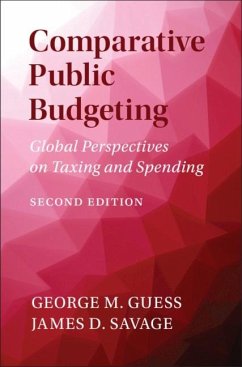Every government engages in budgeting and public financial management to run the affairs of state. Effective budgeting empowers states to prioritize policies, allocate resources, and discipline bureaucracies, and it contributes to efficacious fiscal and macroeconomic policies. Budgeting can be transparent, participatory, and promote democratic decision-making, or it can be opaque, hierarchical, and encourage authoritarian rule. This book compares budgetary systems around the world by examining the economic, political, cultural, and institutional contexts in which they are formulated, adopted, and executed. The second edition has been updated with new data to offer a more expansive set of national case studies, with examples of budgeting in China, India, Indonesia, Iraq, and Nigeria. Chapters also discuss Brexit and the European Union's struggle to require balances budgets during the Euro Debt Crisis. Additionally, the authors provide a deeper analysis of developments in US budgetary policies from the Revolutionary War through the Trump presidency.
Dieser Download kann aus rechtlichen Gründen nur mit Rechnungsadresse in A, B, BG, CY, CZ, D, DK, EW, E, FIN, F, GR, HR, H, IRL, I, LT, L, LR, M, NL, PL, P, R, S, SLO, SK ausgeliefert werden.









